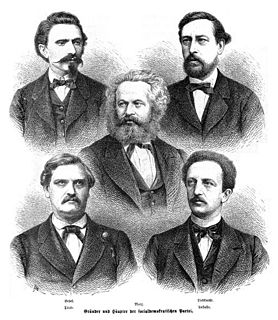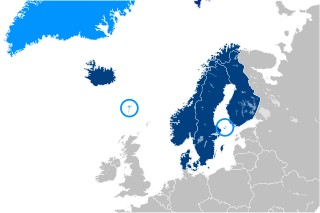Related Research Articles
A flat tax is a tax with a single rate on the taxable amount, after accounting for any deductions or exemptions from the tax base. It is not necessarily a fully proportional tax. Implementations are often progressive due to exemptions, or regressive in case of a maximum taxable amount. There are various tax systems that are labeled "flat tax" even though they are significantly different. The defining characteristic is the existence of only one tax rate other than zero, as opposed to multiple non-zero rates that vary depending on the amount subject to taxation.

Assisted suicide is suicide undertaken with the aid of another person. The term usually refers to physician-assisted suicide (PAS), which is suicide that is assisted by a physician or other healthcare provider. Once it is determined that the person's situation qualifies under the physician-assisted suicide laws for that place, the physician's assistance is usually limited to writing a prescription for a lethal dose of drugs.

Welfare, or commonly social welfare, is a type of government support intended to ensure that members of a society can meet basic human needs such as food and shelter. Social security may either be synonymous with welfare, or refer specifically to social insurance programs which provide support only to those who have previously contributed, as opposed to social assistance programs which provide support on the basis of need alone. The International Labour Organization defines social security as covering support for those in old age, support for the maintenance of children, medical treatment, parental and sick leave, unemployment and disability benefits, and support for sufferers of occupational injury.
Universal health care is a health care system in which all residents of a particular country or region are assured access to health care. It is generally organized around providing either all residents or only those who cannot afford on their own, with either health services or the means to acquire them, with the end goal of improving health outcomes.

The Department for Work and Pensions (DWP) is a department of His Majesty's Government responsible for welfare, pensions and child maintenance policy. As the UK's biggest public service department it administers the State Pension and a range of working age, disability and ill health benefits to around 20 million claimants and customers. It is the second largest governmental department in terms of employees, and the largest in terms of expenditure (£187bn).
Single-payer healthcare is a type of universal healthcare in which the costs of essential healthcare for all residents are covered by a single public system.
Social welfare, assistance for the ill or otherwise disabled and the old, has long been provided in Japan by both the government and private companies. Beginning in the 1920s, the Japanese government enacted a series of welfare programs, based mainly on European models, to provide medical care and financial support. During the post-war period, a comprehensive system of social security was gradually established.
Social welfare in Sweden is made up of several organizations and systems dealing with welfare. It is mostly funded by taxes, and executed by the public sector on all levels of government as well as private organizations. It can be separated into three parts falling under three different ministries. Social welfare is the responsibility of the Ministry of Health and Social Affairs. Education is the responsibility of the Ministry of Education and Research. The labour market is the responsibility of the Ministry of Employment.

Child protection is the safeguarding of children from violence, exploitation, abuse, and neglect. Article 19 of the UN Convention on the Rights of the Child provides for the protection of children in and out of the home. One of the ways to ensure this is by giving them quality education, the fourth of the United Nations Sustainable Development Goals, in addition to other child protection systems.
Social security, in Australia, refers to a system of social welfare payments provided by Australian Government to eligible Australian citizens, permanent residents, and limited international visitors. These payments are almost always administered by Centrelink, a program of Services Australia. In Australia, most payments are means tested.
Healthcare reform in the United States has a long history. Reforms have often been proposed but have rarely been accomplished. In 2010, landmark reform was passed through two federal statutes enacted in 2010: the Patient Protection and Affordable Care Act (PPACA), signed March 23, 2010, and the Health Care and Education Reconciliation Act of 2010, which amended the PPACA and became law on March 30, 2010.

The foundation of the Social Democratic Party of Germany can be traced back to the 1860s, and it has represented the centre-left in German politics for much of the 20th and 21st centuries. From 1891 to 1959, the SPD theoretically espoused Marxism.
Healthcare in Georgia is provided by a universal health care system under which the state funds medical treatment in a mainly privatized system of medical facilities. In 2013, the enactment of a universal health care program triggered universal coverage of government-sponsored medical care of the population and improving access to health care services. Responsibility for purchasing publicly financed health services lies with the Social Service Agency (SSA).
The local government in the Philippines is divided into three levels: provinces and independent cities, component cities and municipalities, and barangays, all of which are collectively known as local government units (LGUs). In one area, above provinces and independent cities, is an autonomous region, the Bangsamoro Autonomous Region in Muslim Mindanao. Below barangays in some cities and municipalities are sitios and puroks. All of these, with the exception of sitios and puroks, elect their own executives and legislatures. Sitios and puroks are often but not necessarily led by an elected barangay councilor.

Assisted suicide is suicide with the aid of another person. In the United States, the term "assisted suicide" is typically used to describe what proponents refer to as medical aid in dying, in which terminally ill adults are prescribed and self-administer barbiturates if they feel that they are suffering significantly. The term is often used interchangeably with physician-assisted suicide (PAS), "physician-assisted dying", "physician-assisted death", "assisted death" and "medical aid in dying" (MAiD).
In England, social care is defined as the provision of social work, personal care, protection or social support services to children or adults in need or at risk, or adults with needs arising from illness, disability, old age or poverty. The main legal definitions flow from the National Health Service and Community Care Act 1990, with other provisions covering disability and responsibilities to informal carers. That provision may have one or more of the following aims: to protect people who use care services from abuse or neglect, to prevent deterioration of or promote physical or mental health, to promote independence and social inclusion, to improve opportunities and life chances, to strengthen families and to protect human rights in relation to people's social needs.
Attendance Allowance is a non-contributory Social Security benefit paid to elderly disabled people in the United Kingdom. It was introduced in the National Insurance Act 1970. The benefit is intended to provide support for those who live independently but might otherwise need to go into residential care. It is paid by the Department for Work and Pensions. The Social Security Contributions and Benefits Act 1992, integrated Mobility Allowance and Attendance Allowance into a new benefit Disability Living Allowance for people under 65.

Social security or welfare in Finland is very comprehensive compared to what almost all other countries provide. In the late 1980s, Finland had one of the world's most advanced welfare systems, which guaranteed decent living conditions to all Finns. Since then social security has been cut back, but the system is still one of the most comprehensive in the world. Created almost entirely during the first three decades after World War II, the social security system was an outgrowth of the traditional Nordic belief that the state is not inherently hostile to the well-being of its citizens and can intervene benevolently on their behalf. According to some social historians, the basis of this belief was a relatively benign history that had allowed the gradual emergence of a free and independent peasantry in the Nordic countries and had curtailed the dominance of the nobility and the subsequent formation of a powerful right wing. Finland's history was harsher than the histories of the other Nordic countries but didn't prevent the country from following their path of social development.

The nation of Austria has a two-tier health care system in which virtually all individuals receive publicly funded care, but they also have the option to purchase supplementary private health insurance. Care involving private insurance plans can include more flexible visiting hours and private rooms and doctors. Some individuals choose to completely pay for their care privately.
In Switzerland a distinction is made between Social assistance in the broader sense and social assistance in the narrower sense.
References
- ↑ rijksoverheid.nl - Concept wetsvoorstel Wmo